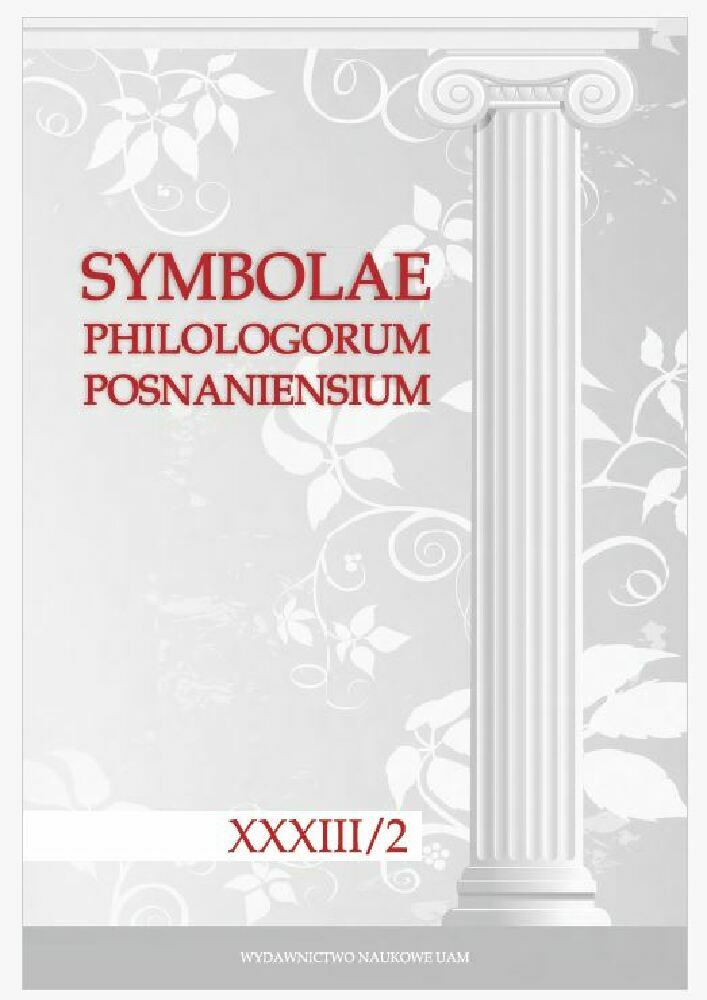MISERE MISER SUM. DIE SPRACHLICHE DARSTELLUNG VON AFFEKT UND EMOTIONEN JUNGER MÄNNER AUF DER BÜHNE DER PALLIATA
THE LINGUISTIC REPRESENTATION OF AFFECT AND EMOTIONS OF YOUNG MEN ON THE STAGE OF ROMAN PALLIATA
Author(s): FELIX SEIBERTSubject(s): Theory of Literature, Sociology of Literature
Published by: Uniwersytet Adama Mickiewicza
Keywords: Plautus; Terence; comedy; emotions; affect; adulescens; young men; ethopoiia; pathopoiia; rhetoric;
Summary/Abstract: This article examines the linguistic representation of strong emotions within Roman comedy using the character of the adulescens. The detailed linguistic analysis of scenes of the three young men Calidorus (Pseudolus), Diniarchus (Truculentus), and Lysiteles (Trinummus) focuses on lexicon, syntax, morphology, prosody, and imagery. The analysis suggests that a specific combination of these features is used to represent emotions such as miseria, ira or desperatio within the text. A final look at Terence’s Andria and Adelphoe supports the results.
Journal: Symbolae Philologorum Posnaniensium Graecae et Latinae
- Issue Year: XXXIII/2023
- Issue No: 2
- Page Range: 121-138
- Page Count: 18
- Language: German

